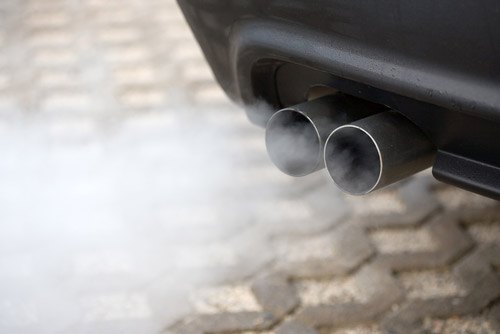War Of The Noses: Germany, Alone Against The Rest Of Europe In CO2 Debate

Senior members of the German government are leaning heavily on EU member states, warning “that German automakers could scale back or scrap production plans in their countries unless they support weakened carbon emissions rules,” Reuters writes. Cabinet members are said to focus their strong-arming on EU countries that recently have been bailed-out, mostly with German money. “They have tried everything at the highest level to pressure member states, in particular countries in the bailout club, to support their proposals,” a diplomat told Reuters. The EU Parliament is set to finalize rules that set a 95g CO2 / km limit by 2020.
The fight however seems not so much a quest for cleaner air than an underhanded fight for more breathing room for the auto industries of some member states.
Germany’s warnings that stricter limits could cost jobs go mostly unheeded. They resonate only with “a handful of central European countries with domestic auto production, but France, Britain and Italy are opposed,“ EU sources tell Reuters.
At first glance, one would think that the latter countries should have even more interest in keeping assembly lines humming than relatively well-off Germany. The truth is one level deeper. The 95g target hits first and foremost the makers of bigger bore nameplates, and those are predominately in Germany: Daimler, BMW, Audi, Porsche. Much to the chagrin of other countries and automakers, the Germans are not as much affected by the European malaise than other countries, but they would get disproportionally socked by the 95g rule. Makers of smaller displacement cars welcome anything to cut the haughty Germans down to size. “Making less-polluting cars is costly and restricts profit margins, which is why major German manufacturers want to delay the stricter rules,” says Reuters. And that’s why other countries can’t wait.
Their goal is to bleed off profits and resources from competiors, and possibly to put companies like Daimler in serious trouble. Ad if it’s under the green guise of a cleaner planet, even better. Who can say nein to that?

Bertel Schmitt comes back to journalism after taking a 35 year break in advertising and marketing. He ran and owned advertising agencies in Duesseldorf, Germany, and New York City. Volkswagen A.G. was Bertel's most important corporate account. Schmitt's advertising and marketing career touched many corners of the industry with a special focus on automotive products and services. Since 2004, he lives in Japan and China with his wife <a href="http://www.tomokoandbertel.com"> Tomoko </a>. Bertel Schmitt is a founding board member of the <a href="http://www.offshoresuperseries.com"> Offshore Super Series </a>, an American offshore powerboat racing organization. He is co-owner of the racing team Typhoon.
More by Bertel Schmitt
Latest Car Reviews
Read moreLatest Product Reviews
Read moreRecent Comments
- Jbltg Nope.
- ChristianWimmer This would be pretty cool - if it kept the cool front end of the standard/AMG G-Class models. The front ends of current Mercedes’ EVs just look lame.
- Master Baiter The new Model 3 Performance is actually tempting, in spite of the crappy ergonomics. 0-60 in under 3 seconds, which is faster than a C8 Corvette, plus it has a back seat and two trunks. And comparable in weight to a BMW M3.
- SCE to AUX The Commies have landed.
- Arthur Dailey The longest we have ever kept a car was 13 years for a Kia Rondo. Only ever had to perform routine 'wear and tear' maintenance. Brake jobs, tire replacements, fluids replacements (per mfg specs), battery replacement, etc. All in all it was an entirely positive ownership experience. The worst ownership experiences from oldest to newest were Ford, Chrysler and Hyundai.Neutral regarding GM, Honda, Nissan (two good, one not so good) and VW (3 good and 1 terrible). Experiences with other manufacturers were all too short to objectively comment on.


































Comments
Join the conversation
What a great example of the perils of outsourcing your domestic industry (and by extension, your sovereignty) to the whims of foreign-headquartered multinationals. "Their goal is to bleed off profits and resources from competiors, and possibly to put companies like Daimler in serious trouble." Hilarious, because that's been the goal of the Germans for years. You could replace Daimler with Chrysler in that sentence, and it would actually have a kernel of truth in it. One public policy initiative that may or may not threaten German economic hegemony, and we never hear the end of it. As if the people of the EU have absolutely no right, through their duly elected representatives, to even debate initiatives that could stick in the craw of German corporate boards.
The only cars that can meet this are plug-in hybrids and $hit boxes with ~1 liter engines. This is a fine limit if you only ever transport yourself and no belongings. Which I suppose is OK, because when the watermelon regulators are finished, no one in the EU will have any belongings to transport anyway. What's next, a tax on breathing? How about a tax credit for your next of kin if you off yourself? Idiots.